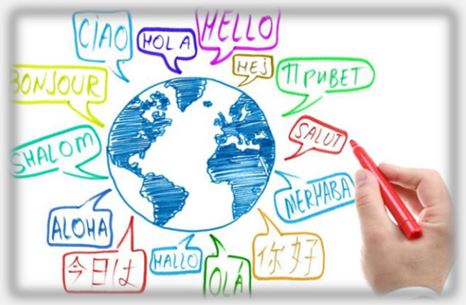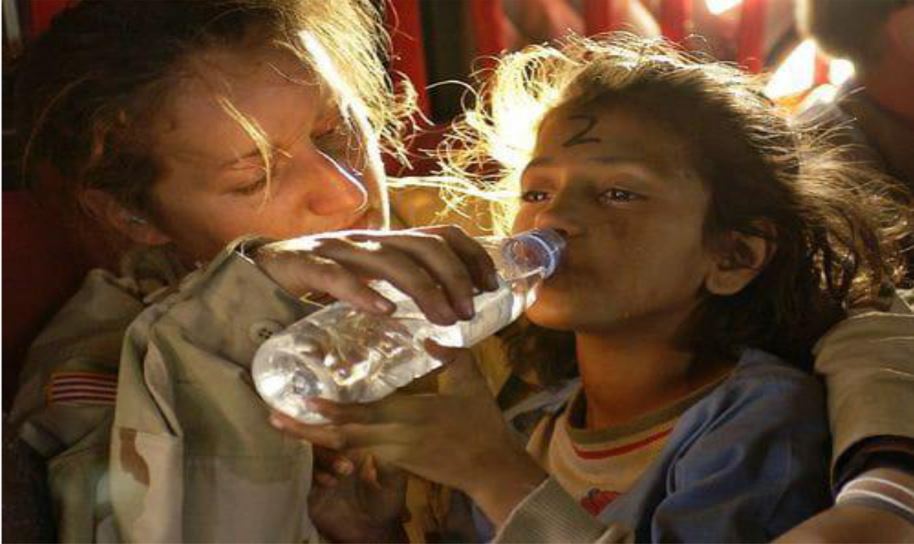The occurrence of disasters often brings communities to their knees. Disasters that require humanitarian intervention are categorized into 3 categories:
1. Natural disasters: 1) geophysical such as earthquakes and volcanos, 2) climatological such as droughts, 3) hydrological disasters such as floods and avalanche, 4) biological such as epidemics and plagues, and 5) meteorological such as storms, cyclones.
2. Man-made disasters such as war, fires and vehicle accidents
3. A combination of natural and man-made disasters for instance, food insecurity and population displacement
When such events occur, affected communities are left in dire need of food supplies, medicine, and shelter. This is where humanitarians step in. A humanitarian can be a passionate individual who dedicates their resources, time, and skills to alleviating suffering and improving the lives of those affected. Humanitarian work is ever-present across the globe as there are always crises in different parts of the world at every given time. Humanitarians can respond to emergencies or be involved in long-term development projects.
The global economic crisis has led to widespread job losses, particularly in the humanitarian sector. Many donor-funded projects have lost financial support, forcing aid organizations to scale back or shut down operations. One of the most recent blows came from the USA’s funding cuts to developing countries, resulting in thousands of lost jobs. Despite these challenges, humanitarian projects still require strong oversight. Aid agencies need professionals with both technical expertise and the competencies to manage aid projects effectively. Essential skills include project cycle management, financial oversight, grant management, and project development. Here are the top skills necessary for a career in humanitarian work:
1. Leadership: In humanitarian work, leaders must make tough decisions under time constraints and with limited information. The ability to remain calm under pressure, strategize effectively, and inspire teams is crucial. Strong leadership ensures efficient aid distribution and quick response during emergencies.

2. Cross-cultural sensitivity: Humanitarian work can be done locally and internationally. In both cases, culture changes from locality to locality and country to country. Hence, one needs to be aware, understand, and embrace the culture of the community they are serving. Being conversant with the local language makes this better, as it enhances understanding and ensures effective communication.
3. Project Management: This technical skill is handy when humanitarian work involves long-term development projects. It consists of the planning, executing, and monitoring of a project to ensure that resources are efficiently allocated and aid is delivered in a timely manner. Aid workers must be adept at organizing tasks, prioritizing workloads, developing innovative solutions, and creating efficient work plans to succeed in the field.

4. Monitoring and Evaluation: This is also a technical skill that requires the humanitarian to track the progress of a project, measure its impact, and make adjustments as necessary.
Monitoring and evaluation is vital in that it enables humanitarians to determine the efficiency and effectiveness of the aid programs, pinpoint areas that need improvement, ensure accountability to the stakeholders, and maximize impact by learning from past experiences.
5. Excellent Writing Skills: Humanitarian professionals often need to draft reports, strategic plans, grant applications, and press releases. Strong writing skills enable them to communicate messages clearly and persuasively to various stakeholders, including donors, governments, and the public.
6. Climate Change Adaptability: With climate change increasingly affecting humanitarian efforts, professionals must understand its implications. Skills in mitigation, adaptation strategies, and emergency response to climate related crises are now essential. Effective humanitarian work requires knowledge of how climate emergencies impact communities and how aid efforts can be adapted to address them.
7. Digital Literacy: Technology is playing a growing role in humanitarian aid, from crisis mapping to mobile cash transfers and drone deliveries. Humanitarian professionals must be digitally savvy, not just for aid distribution but also for communication and engagement with the public. Understanding digital tools and social media can enhance the effectiveness of aid operations.

8. Data Skills: Data literacy is crucial in modern humanitarian work. The ability to read, analyze, and interpret data helps professionals make informed decisions. A solid grasp of spreadsheets, statistical terminology, and data quality assessment enables aid workers to evaluate humanitarian needs accurately and allocate resources effectively.
9. Empathy and compassion: An individual whose personality aligns more with this skill will find humanitarian work more fulfilling. By being empathetic and compassionate, one will display genuine concern for the well-being of those affected by disaster and strive to alleviate the situation.
10. Commitment to human rights: In times of crisis, more so in conflict and war, human rights are often ignored. As a result, atrocities like rape, killing, displacement, and deliberate starvation of vulnerable people occur. The humanitarian worker’s role is to advance human rights and fight for the well-being of the vulnerable. A humanitarian will achieve this by upholding human rights and adhering to ethical conduct that observes humanitarian standards and principles.
Working in the humanitarian sector is a calling to not only serve and uplift but also to permanently and positively impact the lives of those in need. Whether responding to an emergency crisis or engaging in a long-term development project, you are bound to face numerous challenges. With the right skills, including but not limited to the above, you can be a positive force in the world. What’s next? Hone your skills, volunteer locally or internationally, and explore training opportunities. Be the change!
In conclusion…
The humanitarian sector faces increasing challenges, but professionals with the right skills will continue to make a significant impact. Leadership, project management, writing proficiency, climate adaptation, digital literacy, and data skills are essential for navigating the evolving landscape of humanitarian work. As the sector adapts to financial constraints and emerging global crises, these competencies will remain key in sustaining effective aid efforts.
Are you looking at making positive change in the humanitarian sector? Train with us at Shama Consult Africa in courses that advance your career.



Leave a Reply